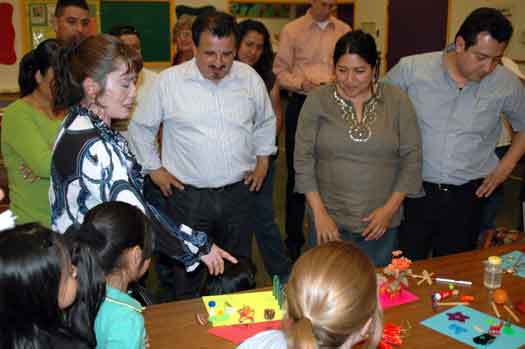LCPP Outreach in Eugene/Springfield, OR (2009-2011)
Latino Public Participation and Community Indicators Project: Developing a Bottom up Understanding of Inclusion and Livability in Lane County Oregon

University of Oregon Professor Gerardo Sandoval, together with the Sightline Institute, Mr. James Rojas, and University of Oregon students developed the LCPP “participatory outreach” approach while testing outreach methods to engage the Eugene/Springfield Latino community. The project utilized a wide range of methods including interviews with Latino leaders and immigrants, small focus groups, and two interactive community planning workshops that engaged almost 100 Latinos in “participation by play” sessions.
LCPP’s outreach found 4 key issues facing the Eugene/Springfield Latino community:
- Latinos feel a distinct lack of community belonging.
- Many Latinos feel that they cannot access public spaces and recreational areas due to their documentation status and/or a feeling of inadequacy as legitimate community members.
- Racial discrimination, especially with respect to housing.
- Heavy reliance on public transportation.
LCPP researchers also developed economic and social indicators of wellbeing specific to the Eugene/Springfield Latino community, such as the number of deportations in the area, percentage of students in free or reduced-price school lunch programs, and housing discrimination measures. LCPP researchers presented the key issues emerging from the project as well as the indicators developed at a public meeting with U.S. Department of Housing and Urban Development (HUD), City of Eugene and City of Springfield leaders, including the Mayors and City Managers of Eugene and Springfield along with several City Council members. Following this meeting, LCPP researchers have been collaborating with community members and the City of Eugene on a project to update the Eugene Parks, Recreation and Open Spaces Comprehensive Plan to create more inclusive public spaces for Latinos. The social indicators developed are being used in long term equity planning by regional planning agencies. The U.S. Department of Housing and Urban Development (HUD) also showcased the project as a national example of conducting public participation in marginalized communities in a review of HUD’s Sustainable Communities Initiative.
This LCPP project empowered Eugene/Springfield Latinos by engaging them in conversation about issues facing the Latino community and presenting these ideas directly to city and planning leaders to be used in defining local planning and policy priorities. By injecting the needs and ideas of Latinos into the process of actually defining policy priorities in Eugene/Springfield, this LCPP project had a lasting impact on the local Latino community and set an example of how local government bodies can meaningfully engage the Latinos.
